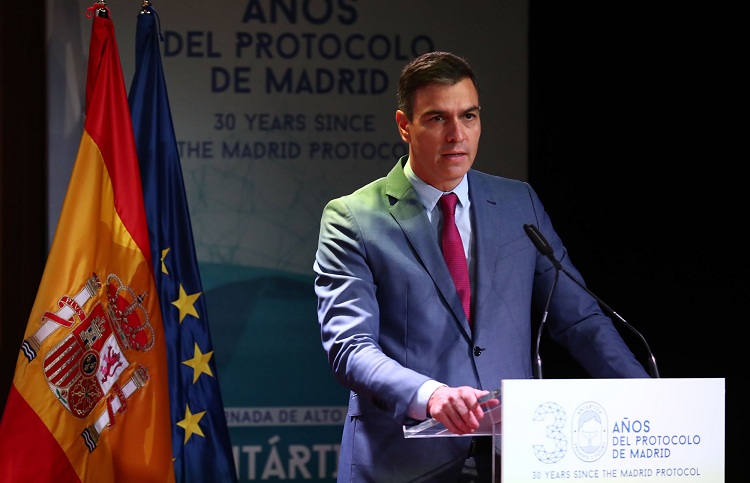The Diplomat
The President of the Government, Pedro Sánchez, inaugurated yesterday, together with the Prime Minister of New Zealand, Jacinda Ardern, and the Prime Minister of Australia, Scott Morrison, an event commemorating the 30th anniversary of the Madrid Protocol, which established a comprehensive protection framework for the Antarctic environment.
“One of the most serious threats facing Antarctica is climate change, which poses a real danger to the long-term survival of Antarctic marine communities,” said Sánchez during the opening of the Antarctica: Present and Future conference, which aims to analyze the terrestrial and marine environmental challenges facing the region and mobilize the international community to reach an agreement to expand marine protected areas in Antarctica.
The Madrid Protocol “demonstrates the value of international law as an effective tool for managing common goods,” continued the President, who urged “ensuring that Antarctica remains a free and cooperative space for the development of scientific projects, within a framework of mutual trust and international cooperation.” The ceremony took place at the Archaeological Museum of Madrid.
The Protocol to the Antarctic Treaty on Environmental Protection, signed in Madrid on October 4, 1991, established a comprehensive protection framework for the Antarctic environment and prohibited indefinitely all activities related to mineral resources, except for scientific research. The document highlights the importance of continuing to develop multidisciplinary scientific cooperation initiatives and the protection of marine areas.
Spain’s involvement in the Antarctic was reflected in the setting up of two scientific research bases: the Juan Carlos I, inaugurated in 1988 and coordinated by the CSIC, and the Gabriel de Castilla, which began operating a year later and is managed by the Spanish Armed Forces. Since then, Spanish researchers and technicians have been developing scientific projects, uninterruptedly during the austral summer, on climate change, pollution, penguins and volcanology.





